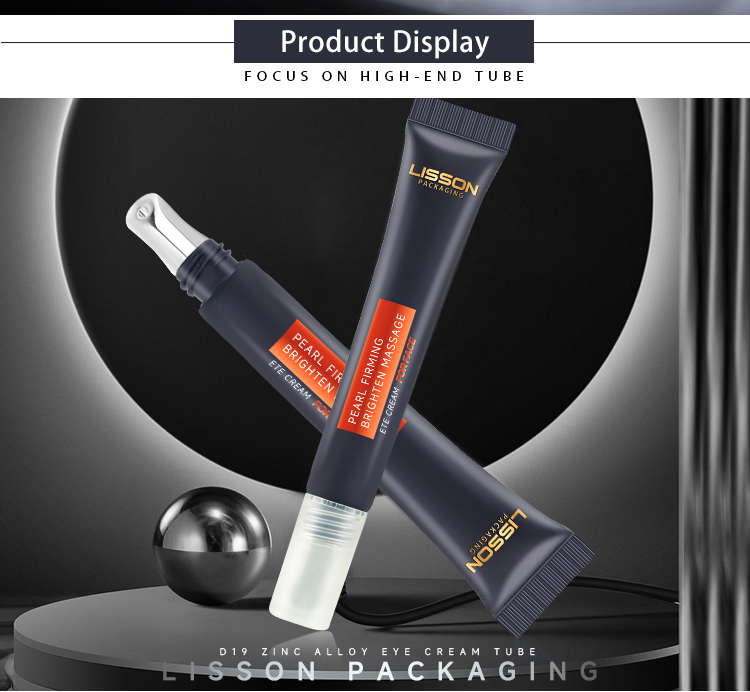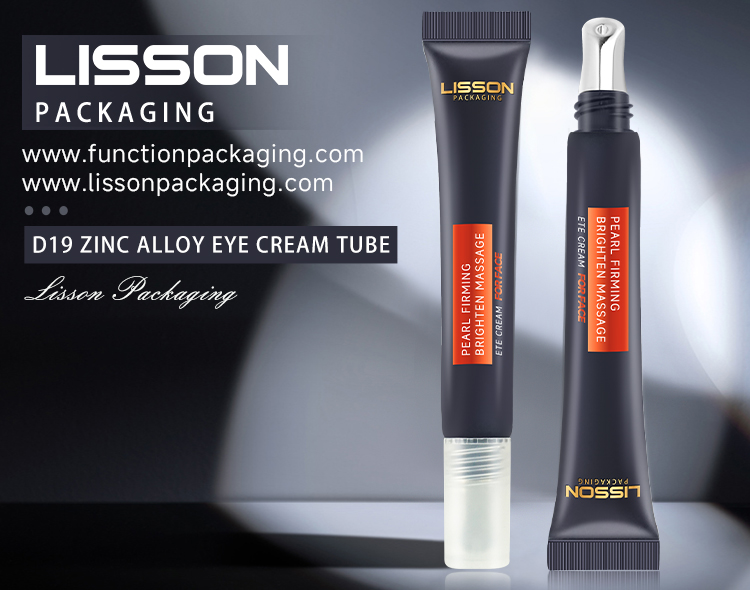In 2025, the demand for smarter, greener, and more stylish squeeze tubes is expected to surge across the global cosmetics and personal care market. Below are the top trends shaping cream tube packaging in 2025 that every brand should watch and consider integrating.
Cream tubes can be categorized by their application style and the materials used in manufacturing, both of which play a vital role in product performance and consumer experience. In terms of application, tubes may feature standard open nozzles for general use, airless pumps for oxygen-sensitive formulations, or integrated applicator tips such as metal rollerballs, ceramic heads, silicone brushes, or vibrating massage tools—ideal for targeted skincare like eye creams or serums. Material-wise, common options include PE (polyethylene) for its flexibility and compatibility with various formulas, ABL (aluminum barrier laminate) for enhanced barrier protection against light and air, and PCR (post-consumer recycled) plastics for eco-conscious packaging. Each type offers distinct advantages, allowing brands to tailor tube packaging to specific product needs, user convenience, and sustainability goals.

1. Sustainable & Recyclable Materials
Eco-conscious consumers are influencing squeeze tube packaging design like never before. In 2025, PE mono-material tubes, sugarcane-based bio-plastics, and PCR (post-consumer recycled) plastics are becoming the new standard. These materials allow for easier recycling without sacrificing durability or barrier protection—meeting both environmental goals and performance expectations.
l Pro tip: Highlight “100% recyclable” or “bio-based” on your packaging to build trust with eco-minded buyers.
2. Airless Technology for Cream Stability
Airless cream tubes are trending for skincare products that rely on active ingredients like retinol, vitamin C, or peptides. These air-reduction mechanisms protect the formula from oxidation and extend shelf life, all while delivering precise, hygienic doses.
l Common in eye creams, anti-aging treatments, and high-end moisturizers.
3. Integrated Applicators for On-the-Go Use
Brands are adding built-in applicators—such as metal rollerballs, silicone brushes, and even vibrating massage heads—directly to the tube. These elevate user experience, especially for products targeting puffiness, fatigue, or contouring needs.
l Expect a rise in hybrid packaging that blends skincare and tool in one sleek squeeze tube.

4. Minimalist, Transparent, and Soft-Touch Designs
Visually, 2025 packaging leans into minimalism, with matte finishes, soft-touch coatings, and clear window strips to reveal product color or volume. This clean aesthetic is appealing to Gen Z and Millennial consumers who prefer functional, honest, and modern branding.
5. Customizable Small-Batch & Private Label Solutions
More suppliers are offering low minimum order quantities (MOQs) and flexible customization options for indie brands. From holographic foils to silk screen printing, brands can craft boutique-quality tubes without mass production.
l Niche brands can now compete with premium aesthetics at manageable costs.
6. Smart Packaging & QR Integration
In 2025, smart packaging is not just for luxury. Expect to see QR codes printed directly on tubes, leading consumers to product tutorials, authenticity verification, or subscription offers. This bridges online and offline experiences for greater brand engagement.
Final Thoughts
The cream tube is no longer just a vessel—it's part of the brand experience. As consumer preferences shift toward sustainability, convenience, and aesthetic minimalism, packaging innovations must evolve accordingly. Whether you're launching a new eye cream or rebranding your signature moisturizer, these 2025 trends can help your product stand out and stay relevant.
Copyright © 2025 Guangzhou Lisson® Plastic Co.Ltd | All Rights Reserved.
Hello, please leave your name and email here before chat online so that we won't miss your message and contact you smoothly.